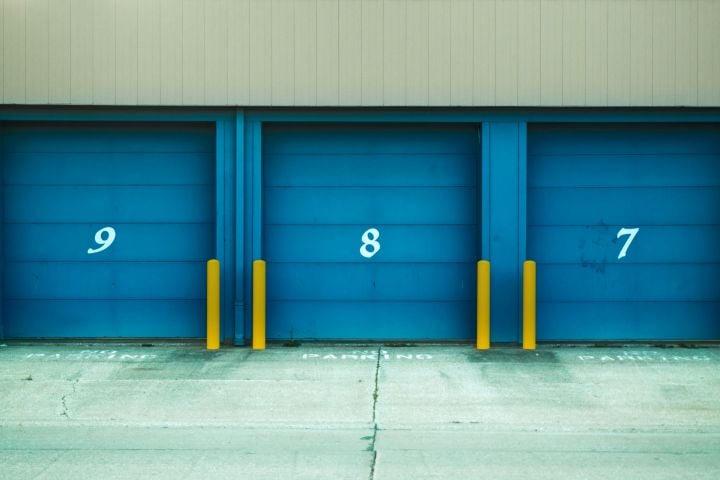Relocating to a new home comes with its share of challenges. The process involves packing, organizing, and transporting belongings while ensuring nothing gets lost or damaged. With so many moving parts, the experience can feel overwhelming. However, incorporating self-storage into your moving plan can provide a simple, practical solution to reduce stress and keep the transition on track.
In this article, we’ll explore how self-storage can simplify your move, providing practical solutions to stay organized and reduce stress.
Why Self-Storage Is Essential During Your Move

A self-storage unit can be a temporary space for items moving from one home to another. This is particularly useful when there is a gap between moving out of your current home and into the next. Instead of feeling pressured to move everything simultaneously, a storage unit allows you to organize your relocation in phases.
There are many reasons you need a self-storage unit, such as downsizing to a smaller home or moving to a new place. Self-storage offers flexibility by keeping essential items accessible while safely storing non-essential belongings. If you’re downsizing, it allows you to hold onto possessions you may want to keep but don’t have space for right away. It also helps prevent clutter in your new home, giving you the freedom to settle in before unpacking everything.
A storage unit can also be beneficial for families with children. Moving with kids often means managing toys, school supplies, and clothing for different seasons. Having a storage unit provides an opportunity to organize these items without overwhelming the new living space. Parents can gradually introduce stored items once other essential parts of the home are set up, making the transition smoother for everyone.
Managing Moving Stress With Self-Storage
Moving is stressful, but a storage unit can help by offering a secure space for items you don’t need immediately. Rather than stacking boxes in your living room or filling every corner of your new space with packed belongings, store non-essential items safely until you’re ready to unpack them.
A storage unit allows you to pack at your own pace. Sorting possessions, boxing up what’s unnecessary, and transporting it to storage prevent last-minute chaos. Seasonal decorations, bulky furniture, and sentimental items that aren’t immediately necessary can be stored until later. This keeps your home functional and free of unnecessary clutter during the transition.
When To Consider Using Self-Storage During Your Move
There are specific scenarios where self-storage can be particularly beneficial. If you’re moving into a smaller space, a unit offers extra storage for items that may not fit immediately. For those renovating a new home before moving in, keeping furniture and belongings in a storage unit protects them from dust, damage, and construction-related delays.
Storage is also helpful if your move-in date is delayed. Rather than scrambling for a solution, having a storage unit in place provides peace of mind. You can move belongings in stages, making the transition smoother and more manageable.
Those moving for work-related reasons may also find valuable storage. If a job relocation requires immediate travel but housing arrangements are not finalized, a storage unit ensures that personal belongings remain safe while finding a long-term residence.
Organizing Your Move With Self-Storage
Staying organized is key to a smooth relocation, and self-storage can help. Start by inventorying what will go into storage and what will move with you immediately. Labeling boxes clearly and using transparent storage bins makes it easier to find items when needed.
Stack heavier items on the bottom and fragile belongings on top to maximize space. Leave aisles between boxes so that you can access things without unpacking everything. Placing frequently used items near the front of the unit also saves time and effort.
Using shelving inside the storage unit can further improve organization. Stacking boxes directly on each other may lead to difficulty accessing items later. With shelves, categories of belongings remain separated, and essential items are easier to retrieve when needed.
How Self-Storage Helps With Downsizing During a Move
Downsizing can be a complex process, especially when parting with sentimental belongings. A storage unit provides a temporary solution, allowing time to sort possessions without making hasty decisions.
Storage offers a middle ground if you’re unsure about keeping certain items. You can revisit stored belongings after settling into your new home and determine what’s necessary. This prevents regret over discarding items too quickly and helps ease the emotional aspect of downsizing.
For those moving in with family or into shared living arrangements, storage can help manage space constraints. Shared homes often require compromises on furniture, appliances, and décor. Storing personal items ensures they remain available if future housing situations change.
Conclusion
Using self-storage during a move offers several benefits, including reducing stress, staying organized, and creating flexibility in your moving timeline. It also provides a secure space for belongings, allowing you to manage the relocation process efficiently.
Planning and considering a storage unit as part of your moving strategy can make the transition smoother. With the right approach, moving doesn’t have to be overwhelming. Instead, it can be a well-organized, stress-free experience that helps you quickly settle into your new home.
We hope you found this blog post on Moving Made Easy: How Self-Storage Can Simplify Your Relocation, useful. Be sure to check out our post on Tips and Tricks For Efficient Storage Unit Organization for more great tips!
Have Experience in the Moving Industry? Want an Additional Income Stream? Work With All Around Moving!
Join the All Around Moving Services Company, Work With Us program. We provide you with the carriers and storage facilities names, or you can use your own and so by joining, you could have your own company up and running very fast.
Click here to learn more and how a nominal one-time start-up fee of $275.00, gives you the “key” to have your business.





